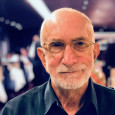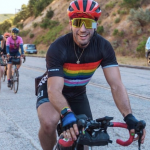I’m going on vacation this week. I’m lucky. It signifies a degree of privilege, I know. It also represents a real need to experience what many retirees do. “You have earned it,” said a friend. “Don’t feel guilty.” But I do. We white gay men with homes to our name and cars in the garage sometimes inadvertently flout things, often products of a lifetime of hard work, without acknowledging our good fortune. So I try to do just that, awkwardly maybe, but sincerely.
I acknowledge privilege because NOT to do so seems callous and boorish. I recognize too that to do it poorly can sound more like boasting than acknowledging there is no level playing field here. But recognizing we are privileged (or not) and communicating this imbalance strike me as a vital part of our work in advocacy. It situates who we are and where our views are born.
Thing is, we all need vacations, whether we are working, retired or on disability. A change of scene surely works wonders. All of us need to recharge our batteries, breathe fresh air and live healthier and free of worries, even if for a couple of weeks a year. The Soviets famously recognized this; seaside resorts of varying quality were where Russian factory workers vacationed at the state’s expense. The practice of state-sponsored retreats, though, never really crossed the pond. The result? Only those with a bit of money in North America have access to something so vital to our physical and mental health. Equitable this is not.
True, some people living with HIV and their families have access to a summer camp here and there like, for example, Camp Snowy Owl in Ontario, Canada. For others there is the opportunity to apply for HIV conferences both in our native country and abroad. Not exactly a vacation, but the costs are often covered to get to pretty fabulous places. The scholarship process is notoriously hard, though, and excludes many who apply. The process favors the privileged, in fact. The result? Many people with HIV spend 52 weeks a year at home. That’s not healthy.
Elsewhere, we focus on 90-90-90 initiatives and ending the epidemic. Some advocates though, including this one, are calling for a fourth 90, measuring quality of life for those living with HIV. How that fourth 90 would be measured remains problematic. (Does it include vacations?) It strikes me though that a life spent unable to afford a vacation is hardly the healthiest—and we need to grapple with solutions.
Solutions don’t come easily, of course, if they involve increased income security or a substantially enhanced minimum wage. But there are ways for agencies, typically with fundraising dollars, to enhance the lifestyle of people living with HIV. Some agencies are successful at this, others not. The point is that a fulsome discussion about quality of life that may or may not include vacations is long overdue. Let’s be bold, let’s be innovative and let’s get results.
Meanwhile, there is privileged me. We are travelling this week by car from Canada through the States to South Carolina. It’s a trek we make annually. We like it there and not just for the weather. There is guilt in that itinerary too: We vowed at one time never to travel to the USA while a Republican-controlled regime was in power. We caved. We may be principled, but we are also human.
As my friend said, though, maybe I have earned these kind of jaunts. I spent a lifetime working at a job I didn’t like in the upper echelons of the banking world. It was challenging and stressful. I worked incredibly long hours, sometimes seven days a week. True, it paid well, but the sacrifices were enormous. Fast forward to the present, and my vacations seem like pay-back time.
I don’t feel guilty about being HIV positive though. Never have, and I try not to feel guilty about taking vacations.








2 Comments
2 Comments